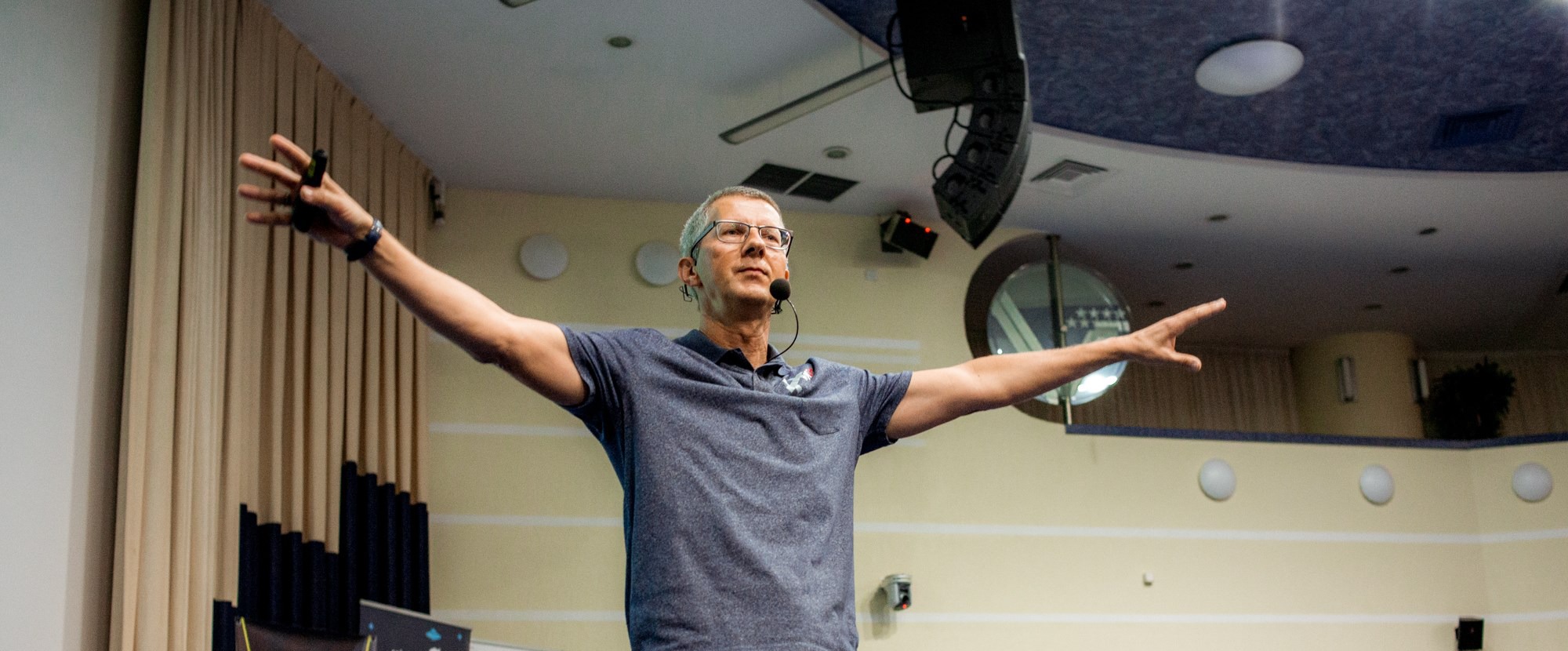Training or Mentoring: What’s the Difference?
Training and mentoring aim one goal: to improve your skills in a well-defined way. Although both aim for the same goal, they use very different ways. One may fit your needs, but not the other.

First, I have to make a short disclaimer.
Disclaimer
The comparison in this post is due to my experience as a trainer and mentor. For almost 20 years, I have trained and mentored in various ways: on-site or online for companies or individuals. Since 2016, I have been a professional C++ and Python trainer. This year, I started a worldwide mentoring program.
Now, I provide about 40 three days classes a year and dedicate the Friday to my international mentoring program.
So, let me start with my comparison.
 Modernes C++ Mentoring
Modernes C++ Mentoring
Do you want to stay informed: Subscribe.
My trainings take 2 to 3 days, and my mentoring lasts 4 to 8 months. To simplify my argumentation, I assume that training takes three days and mentoring eight months.
Duration
The first noticeable difference is its length.
- The training is for three days. Each day has essentially 6 hours of content.
- In contrast, mentoring takes four to eight months. Each week, you have to invest at least three hours.
Methodology
Also, the methodology differs. Mentoring adds a new component.
- Training consists of theory and practice. Theory means that I explain the content and answer specific questions. Practice means that the participants do (too few) exercises, and I discuss their solutions.
-
-
-
-
- Mentoring consists of theory, practice, and mentoring.
-
-
-
-
-
- Theory
- Videos explaining the theory and the examples
- Theory
-
-
-
- Practice
-
-
- Videos explaining the exercises and the solutions
- Active community in forums discussing the theory and practice
-
-
- Mentoring
-
-
- Live Q&A session each week, about one hour. They are recorded.
- One-to-one mentoring at the end of the mentoring program
-
-
- Practice
-
Overall Content
This comparison shows it crystal clear. Mentoring provides way more content and gives way more flexibility.
- Training has a well-structured plan. Making detours or discussing additional topics is challenging because I have to drop other important features. This is only possible if all the participants agree. In sum, I teach 3 (days) * 6 hours = 18 hours.
- Mentoring also has a well-structured plan, but I have the time to discuss additional topics with all or individual mentees. In the end, I never have to say no regarding these detours. This is very beneficial for the mentees and me. In sum, I teach 39 (weeks) * 3 hours = 108 hours.
Number of Participants
The number of people in a training is pretty limited, but not in a mentoring.
- The ideal participant’s number of training is between five and ten. In general, I accept no more than 15 participants.
- Mentoring works the other way around. At least 100 participants work very well. The more participants you have, the better.
Interaction 
With mentoring, there is a new dimension of interaction.
- In training, you mainly interact with the trainer. This interaction ends when the training end.
- In mentoring, you can interact with me directly in the weekly Q&A session. Additionally, you can ask your questions in the forums. Now, you can use the active community. I moderate the forum and answer the questions if necessary. This works very well.
Integration
How can you integrate training or mentoring into your private and business commitment?
- For training, this is easy. You have to dedicate the three proposed days to the class.
- You may wonder how an eight-month mentoring can be integrated into your private commitment (family, holiday) and business commitments. This is easy. All content is available offline. The Q&A sessions are recorded, the forum is online, and the videos, articles, and slides are always available. Additionally, I make a week without additional content every four or six weeks. Therefore, it is pretty easy to catch up with the content. This helps you to make the mentoring beside your business workload or your family commitments.
Sustainability
Sorry, I have to say this, but classical training has serious issues.
- After my three-day training, you are, like me, pretty exhausted. You learn so much that it is quite probable that you will forget a lot if you cannot use it in your daily work. The main issue we talk about a new feature only once in training.
- In mentoring, you will experience a new feature a few times from different perspectives. Additionally, you can consume the theory more than once, discuss this feature in the forum or the Q&A sessions, and practice it in the exercises. In the end, you get a deeper and more sustainable impact of the feature.
Costs
I can only partially answer this question. Most of the time, your company hires me for a class. Therefore, I assume you will participate in one of my open training. For my upcoming four-month mentoring programs, you have to pay the same for the corresponding training. For my running mentoring “Fundamentals for C++ Professionals“, there is no corresponding training I provide. I cannot give an 18 days training.
Of course, I will also provide a mentoring program for entire teams or companies for an adjusted price.
Resume
You may assume it from the comparison. After almost 20 years of training and mentoring, mentoring is my favorite. Additionally, I assume that your company supports you with time and money. Only when you need a quick and concise refresher, and you are a pretty seasoned C++ developer, training may be the right choice.
Here are all the facts in a table:

Thanks a lot to my Patreon Supporters: Matt Braun, Roman Postanciuc, Tobias Zindl, G Prvulovic, Reinhold Dröge, Abernitzke, Frank Grimm, Sakib, Broeserl, António Pina, Sergey Agafyin, Андрей Бурмистров, Jake, GS, Lawton Shoemake, Jozo Leko, John Breland, Venkat Nandam, Jose Francisco, Douglas Tinkham, Kuchlong Kuchlong, Robert Blanch, Truels Wissneth, Mario Luoni, Friedrich Huber, lennonli, Pramod Tikare Muralidhara, Peter Ware, Daniel Hufschläger, Alessandro Pezzato, Bob Perry, Satish Vangipuram, Andi Ireland, Richard Ohnemus, Michael Dunsky, Leo Goodstadt, John Wiederhirn, Yacob Cohen-Arazi, Florian Tischler, Robin Furness, Michael Young, Holger Detering, Bernd Mühlhaus, Stephen Kelley, Kyle Dean, Tusar Palauri, Juan Dent, George Liao, Daniel Ceperley, Jon T Hess, Stephen Totten, Wolfgang Fütterer, Matthias Grün, Phillip Diekmann, Ben Atakora, Ann Shatoff, Rob North, Bhavith C Achar, Marco Parri Empoli, Philipp Lenk, Charles-Jianye Chen, Keith Jeffery, Matt Godbolt, and Honey Sukesan.
Thanks, in particular, to Jon Hess, Lakshman, Christian Wittenhorst, Sherhy Pyton, Dendi Suhubdy, Sudhakar Belagurusamy, Richard Sargeant, Rusty Fleming, John Nebel, Mipko, Alicja Kaminska, Slavko Radman, and David Poole.
| My special thanks to Embarcadero |  |
| My special thanks to PVS-Studio |  |
| My special thanks to Tipi.build |  |
| My special thanks to Take Up Code |  |
| My special thanks to SHAVEDYAKS |  |
Modernes C++ GmbH
Modernes C++ Mentoring (English)
Rainer Grimm
Yalovastraße 20
72108 Rottenburg
Mail: schulung@ModernesCpp.de
Mentoring: www.ModernesCpp.org
Modernes C++ Mentoring,




Leave a Reply
Want to join the discussion?Feel free to contribute!